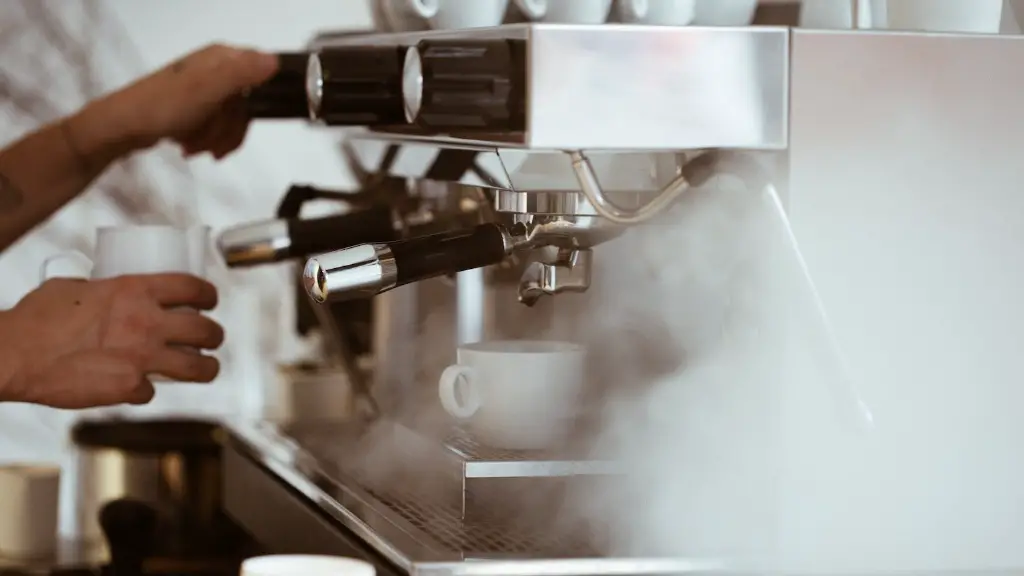Teenagers are increasingly drinking coffee, either in place of sugary drinks or due to enjoying the taste. Not everyone is sure how much coffee is healthy for teenagers – as with adults, the answer can vary depending on individual biochemistry and health. Therefore, it’s important to keep an eye on your teenager’s caffeine consumption, and to be aware of both potential benefits and risks associated with ingesting caffeine.
Coffee comes with both good and bad — it contains antioxidants, can provide energy and can boost cognitive performance, however, it can also cause sleep problems and dependency, as well as increasing problems for those who are prone to anxiety. The amount of coffee that is safe for a teenager to drink will vary from person to person, and it’s important to consider their overall health and lifestyle.
The average cup of coffee contains approximately 95 milligrams of caffeine, but this can vary depending on the type of coffee, the amount of coffee used and the brewing method. The American Academy of Pediatrics (AAP) does not advise anyone, including adolescents, to consume any caffeine.
According to the author of Caffeine for Kids, Dr. Ryan Hammons, “Adolescents should limit coffee consumption to no more than one cup per day, and possibly none on certain days, in order to receive the greatest health benefits while minimizing risk. Too much coffee consumption can increase irritability, disrupt sleep, increase heart rate and blood pressure, as well as increase anxiety and restlessness.”
In addition to Dr. Hammon’s advice, it is important for parents helping to guide their teenagers towards healthy coffee consumption, to ensure that the coffee is made using a quality coffee blend or freshly-ground beans and coffee maker, and preferably brewed with an electric coffee maker, to ensure that no pollutants enter the coffee.
Also, parents might find it helpful to provide their teenagers with an alternative to coffee, such as caffeine-free tea, which can provide hydration and still supply antioxidants with lower doses of caffeine.
Teenagers should also be aware that many food and drinks marketed as ‘energy drinks’ contain high doses of caffeine and other stimulants and can be very dangerous if consumed too much.
Health Benefits
Coffee can be beneficial for teenagers, but the key is to drink it in moderation. Coffee contains antioxidants which are beneficial for reducing inflammation. Regular consumption of coffee may help to reduce the risk of developing heart disease and diabetes. Coffee also has the ability to boost cognitive performance and energy levels, which can be helpful for teenagers who need additional energy for school and extracurricular activities.
It can be beneficial for teenagers to drink coffee in the morning or during the day, but it is important that they limit their intake. Drinking one cup of coffee on an empty stomach can be beneficial as it can provide energy and help with concentration, focus and alertness. Coffee can also be beneficial to give teenagers a break in the middle of the day, if they are feeling overwhelmed or tired.
It is important to keep track of how your teenager is feeling in response to the coffee. They should keep in mind that caffeine is a stimulant and can sometimes cause side effects such as headaches, jitters and restlessness.
How to Enjoy Coffee Properly
When it comes to moderation, caffeine should be consumed gradually. Start with a small portion, such as a quarter of a cup, and gradually increase it until they are at the desired amount of caffeine. This will help to make sure that the teenager does not consume too much at once.
It is important to note that caffeinated drinks should not be consumed too late in the day as this may disrupt the teenager’s sleep pattern. It is also important to be mindful of the types of coffee they are drinking, as some may be high in sugar, fat and calories.
It can also be helpful to try different types of coffee, such as cold brew, which contains lower levels of caffeine than hot brewed coffee. Cold brew may also be easier on the stomach, as it is less acidic.
Potential Dangers
Although coffee can have some benefits for teenagers, it is important for parents to be aware of the potential dangers. Too much caffeine can be dangerous for teenagers, as it can lead to restlessness, anxiety and irritability.
It is not recommended for teenagers to rely on caffeine to give them energy, as this can lead to dependency and fatigue when the caffeine wears off.
It is important to be aware of the potential effects of caffeine on teenagers, as it can affect their overall health and wellbeing. Too much caffeine can also interfere with their sleep patterns and disrupt their ability to concentrate and focus.
Alternatives to Caffeine
In addition to limiting caffeine, teenagers should consider healthy alternatives to give themselves an energy boost, such as drinking water or herbal tea. Eating healthy snacks such as nuts and fruits can also be beneficial to provide fuel for the brain and body.
Exercising, such as walking or jogging, can also be beneficial to release endorphins and help the teenager to relax and feel energized.
How to Monitor Caffeine Intake
It is important for parents to monitor their teenager’s caffeine intake, by checking labels to make sure that they are not overconsuming caffeine, and being aware of the symptoms of caffeine overdoses. Parents should also be open and honest about the potential risks of caffeine for teenagers, explaining the importance of moderation and appropriate consumption.
It is also important for parents to practice what they preach, regulating their own caffeine intake and being setting a good example for their teenagers.
How to Support Healthy Coffee Habits
It is important for parents to encourage their teenagers to make healthy coffee habits, by conducting regular check-ins with their teenagers and helping them to stay mindful of their consumption.
Parents can also offer their teenage coffee drinkers different varieties of coffee, such as coffee brewed with almond milk or organic coffee in place of sugary, processed coffee drinks.
Finally, parents can encourage their teenagers to explore different cultures where coffee is consumed, such as Italy and Ethiopia. This can be a great way for teenagers to learn about different countries, as well as to explore subtle nuances of taste, culture and coffee history.
The Need for Balance
It is important to remember that it is possible to enjoy coffee in moderation. Parent’s should help their teenagers to develop a healthy relationship with caffeine, by educating them on the potential benefits and dangers and encouraging balance. The key is conversation, consistency and moderation.
By engaging in regular check-ins and conversations with their teenagers, parents can help to ensure that their coffee consumption is not negatively impacting their health and wellbeing. Additionally, by being open and honest with their teenagers, parents can encourage their teenagers to maintain a healthy relationship with coffee and caffeine.
Knowing When to Talk to a Doctor
When it comes to teenagers and coffee consumption, parents should be aware of the amount of caffeine that their teenager is consuming, and should talk to their doctor if they are concerned about their teenager’s health.
Parents should also talk to their doctor if their teenager is having sleep problems or if they are experiencing any unexplained health issues due to their coffee consumption. A doctor will be able to assess the situation and offer advice on how to safely enjoy coffee.
The Importance of Education and Open Communication
Ultimately, it is important for parents to educate their teenagers on the potential benefits and risks of coffee consumption, and to encourage open communication.
By talking openly and honestly with their teenagers and leading by example, parents can help their teenagers to develop a healthy relationship with caffeine, and to ensure that they are not consuming too much coffee. Additionally, they can encourage their teenagers to learn more about different types of coffee, discover different flavours and explore different cultures.


